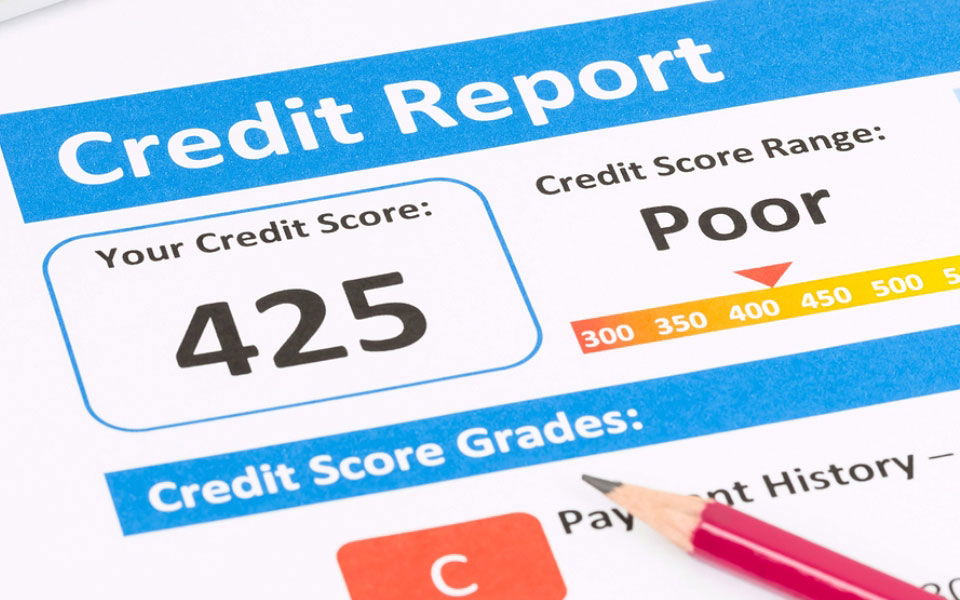A bad credit score can cost you more than you might think. You’ll likely face higher interest rates, larger security deposits, and fewer options for loans, credit cards, or housing. In some cases, you could even lose out on a job opportunity.

In this guide, we’ll break down what’s considered a bad credit score, what causes it, and what you can do to fix it. Whether you’re just starting to rebuild or looking for quick wins, we’ll show you what steps actually move the needle—and what options are still available even with bad credit.
What is considered a bad credit score?
A bad credit score typically means a FICO score below 580. That’s the point where most lenders start to see you as high risk—and either deny your application or charge you much higher interest rates.
Here’s how FICO score ranges break down:
| FICO Score Range | Rating |
|---|---|
| 800–850 | Excellent |
| 740–799 | Very Good |
| 670–739 | Good |
| 580–669 | Fair |
| Below 580 | Poor / Bad |
For comparison, the average credit score in the U.S. is 716. If your score is under 600, you’re well below that mark—and likely facing limited credit options and higher borrowing costs.
While most lenders use FICO scores, you may also see a VantageScore when checking your credit online. VantageScore uses the same 300–850 range, but it considers anything below 600 as poor. It’s useful for tracking your progress, but FICO remains the score most lenders care about.
How a Bad Credit Score Can Affect Your Finances—and Your Life
A bad credit score doesn’t just make borrowing more expensive—it can affect several key areas of your life.
- Loans and credit cards: Lenders may deny your application, or approve it with a much higher interest rate. That means you’ll pay more over time—sometimes thousands more.
- Renting a home: Landlords often check your credit report to decide whether you’re likely to pay rent on time. A poor score can lead to a rejected application or a larger deposit.
- Insurance and utilities: Some car insurance companies and utility providers may charge you more upfront—or require a security deposit—if your credit report shows late payments or collections.
While employers don’t see your credit score, a few may review your credit report (not score) during the hiring process—mainly for positions that involve handling money or sensitive information. Even then, it’s not common and requires your consent.
What causes a bad credit score?
Bad credit usually doesn’t happen overnight. It often builds up through repeated issues or major setbacks. These are the most common reasons credit scores fall into the “bad” range:
- Missed or late payments: This is the biggest factor in your score. Even one payment that’s more than 30 days late can drag it down.
- High credit card balances: Using more than 30% of your credit limit signals risk to lenders and can hurt your score fast.
- Collections and charge-offs: If an account goes unpaid for long enough, it may be sent to collections or written off. Both are serious negative marks.
- Too many hard inquiries: Applying for several loans or credit cards in a short time can lower your score and make you look desperate for credit.
- Bankruptcy or foreclosure: These are major events that can knock your score down by 100 points or more and stay on your report for up to 10 years.
If your credit score is low, these are the first issues to check for—and the first to fix.
How Long Negative Items Stay on Your Credit Report
Negative information doesn’t stay on your credit report forever, but how long it lingers depends on what it is. Here’s a breakdown:
- Late payments: 7 years from the original delinquency date
- Collections: 7 years from the original delinquency date
- Charge-offs: 7 years from the date the account first became delinquent
- Bankruptcy (Chapter 7): 10 years from the filing date
- Bankruptcy (Chapter 13): 7 years from the filing date
- Foreclosure: 7 years
- Hard inquiries: 2 years
Older negative items tend to carry less weight than recent ones. A missed payment from five years ago won’t hurt you nearly as much as one from last month.
Ready to Fix Your Credit? Start Here.
Answer a few simple questions and get a free step-by-step plan to rebuild your credit.

How to Check Your Credit Report and Credit Score
You can check your credit report for free at AnnualCreditReport.com, which gives you access to reports from Equifax, Experian, and TransUnion once every 12 months. These reports show your credit accounts, payment history, and any negative marks.
Your credit report is not the same as your credit score. The report is a record of your credit activity. The score is a number based on the information in that report.
For your credit score, many credit card companies now offer free access to it as a cardholder perk. You can also use third-party apps or sign up for a credit monitoring service.
Keep in mind that some of these scores are “educational” scores—not your actual FICO score. If you want the same score most lenders use, you’ll need to get your real FICO score directly from myFICO.com or a lender that uses FICO data.
How to Fix a Bad Credit Score Fast
While time helps, these steps can speed things up.
Check for Errors and Dispute Inaccuracies
Review your credit reports for anything that looks wrong—like accounts you didn’t open or payments you know you made. Under the Fair Credit Reporting Act, you have the right to dispute any inaccurate or unverifiable information.
Use our free credit dispute letter template to challenge inaccurate items on your credit report. Just customize it with your information and send it to the credit bureau reporting the error.
Pay Down High Balances
Your credit utilization ratio—how much of your available credit you’re using—has a big impact on your credit score. Aim to keep it under 30%, or lower if possible. Paying down balances is one of the fastest ways to see a score boost.
Open a Secured Credit Card
A secured credit card requires a refundable deposit and is designed for people with bad credit. Use it for small purchases and pay it off in full each month to build positive history.
See also: Best Secured Credit Cards of 2026
Consider a Credit Builder Loan
Credit builder loans are designed to help you build credit from scratch. You don’t get the money upfront—instead, it’s held in a savings account while you make monthly payments. Once the loan is paid off, you get the money and a record of on-time payments.
See also: Best Credit Builder Loans of 2026
Become an Authorized User
Ask a family member or close friend with good credit to add you as an authorized user on one of their credit cards. You don’t even need to use the card—their positive payment history can help raise your score.
Can you get approved with bad credit?
A low credit score limits your options, but it doesn’t shut the door completely. Some lenders and programs are designed specifically for borrowers with poor credit.
Personal Loans for Bad Credit
There are lenders who work with people who have credit scores below 600. You’ll likely pay a higher interest rate and receive a smaller loan amount, but it can still help in a financial pinch.
See also: Best Personal Loans for Bad Credit for 2026
Mortgages With Poor Credit
A conventional mortgage usually requires a credit score of at least 620, but government-backed loans are more flexible. FHA loans only require a 580 score with 3.5% down. If your score is lower than that, you may still qualify by putting 10% down.
Lenders also look at your debt-to-income ratio, employment history, and savings. Most want your monthly debts to be under 43% of your gross income.
See also: How to Get a Mortgage with Bad Credit
Should You Hire a Credit Repair Company?
If your credit report has multiple errors, or you’re overwhelmed by the process, working with a credit repair company might help. They can dispute inaccurate items on your behalf and follow up with the credit bureaus.
But they can’t remove accurate negative items or guarantee a higher score. What they can do is save you time and keep your disputes organized.
Final Thoughts
A bad credit score doesn’t have to follow you forever. With the right steps, you can start rebuilding—and in many cases, see progress in just a few months.
Start by checking your credit reports, disputing anything that shouldn’t be there, and focusing on lowering your credit card balances. Then build new positive history with tools like secured cards and credit builder loans.
